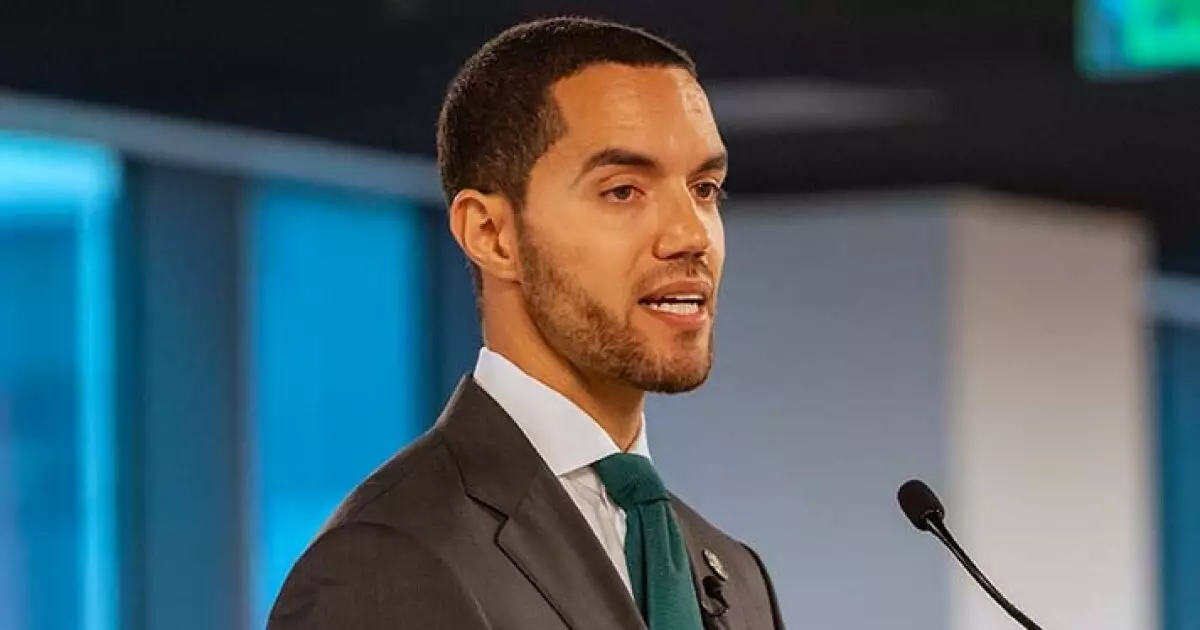In recent developments surrounding Houston’s municipal governance, Mayor John Whitmire has publicly criticized City Controller Chris Hollins for soliciting sponsorships from municipal bond firms ahead of an investor conference. This controversial collaboration has raised eyebrows and echoes sentiments of ethical concerns, particularly given the significant financial contributions required for sponsorship. Prices for sponsorships reportedly range from $10,000 to $100,000, all while promising benefits such as enhanced recognition and networking opportunities. Whitmire has raised alarms about the potential for a “pay-to-play” environment, calling into question the integrity of Houston’s municipal procedures.
The mayor expressed grave concern that the sponsorship arrangements could lead to conflicts of interest, given that Hollins is part of the team responsible for selecting bond underwriters for the city. “This is nothing but the appearance of pay-to-play in Houston, Texas, done with city resources,” Whitmire declared during a press briefing, indicating a stark warning about the implications of these arrangements on public trust and the reputation of the city.
According to Whitmire, numerous bond underwriting firms have voiced apprehensions regarding potential ethical violations tied to Securities and Exchange Commission rules due to these sponsorship solicitations. The mayor seems particularly troubled by the unprecedented nature of corporate sponsorships for this type of event in Houston, noting that prior investor conferences did not entertain corporate sponsorships at all. The concern is not merely theoretical; the financial ramifications could shake foundations in the city’s bond market, prompting institutional players to question transparency and fairness.
The sponsorship fees earmarked for the Houston Forward Fund, a nonprofit organization, have also drawn criticism. While Hollins defended the fund’s autonomy, Whitmire’s assertions raise pertinent questions about the influence of municipal officials over fund disbursements. This dispute signals underlying tension not only between the mayor and the controller but possibly among multiple stakeholders in Houston’s fiscal landscape.
The Response and Counterarguments
In a dual press conference, Controller Hollins described the mayor’s accusations as “baseless” and accused him of being hypocritical. He pointed out that only the mayor and city council have the authority to award bond-related contracts, asserting that his office’s involvement revolves chiefly around recommendations rather than direct financial preferences. Furthermore, Hollins suggested that Whitmire’s focus on his office’s practices was a diversion from more pressing issues, such as the city’s increasing financial woes, which have led to negative assessments from national credit agencies.
Hollins underscored the fragility of Houston’s financial status, indicating that rising debt levels and expenses without corresponding revenue plans could jeopardize the city’s long-term fiscal health. His remarks seem to suggest a deeper concern about governance practices, highlighting a disconnect between the public’s perception of fiscal responsibility and the city’s true financial state.
In response to the brewing controversy, Mayor Whitmire has called for an investigation by Houston’s Office of the Inspector General into potential violations of city ordinances and ethical standards related to the sponsorship activities. He expressed anticipations that this examination would lead to a thorough review of any connections to criminal behavior, should they come to light. This proactive step reflects a commitment to ethical governance, albeit one that exposes the fragility of trust within city management.
Moreover, Whitmire announced that he and his staff would refrain from participating in the conference until these issues have been resolved, emphasizing the need for accountability. This stance showcases a pivotal moment for leadership dynamics within the city; confidence among constituents must be restored after allegations of misconduct have emerged.
As a point of reference, it is noteworthy to compare Houston’s scenario with that of Chicago, where recent municipal bond investor conferences have notably lacked corporate sponsors, a practice that underscores different governance approaches in major urban centers. The absence of corporate sponsorship in Chicago illustrates a diverging path in fiscal transparency and ethical considerations when it comes to public funding events. While this aspect might not provide a panacea for Houston’s challenges, it inevitably raises questions about best practices in municipal governance.
Despite the escalating drama, Hollins affirmed that the investor conference will proceed as planned, maintaining that participation from municipal officials should not be a precondition for success. Given the importance of such events to the broader financial ecosystem and stakeholder trust, it will be crucial to monitor both the proceedings of the conference and subsequent fallout from the heightened allegations of impropriety.
As the situation unfolds, Houston faces an imperative to prioritize transparency and establish robust checks on its governance mechanisms. The current discord between the mayor and the controller serves as a catalyst for greater scrutiny and might encourage structural reforms that could ultimately benefit the city’s financial integrity. At a time when fiscal responsibility is under the microscope, ensuring that the lines of ethical practice remain clear is essential to restoring public trust and confidence in Houston’s governance.


Leave a Reply